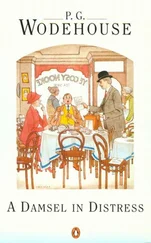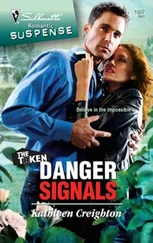‘Good evening, Mrs Yapp,’ Aymer said, his voice uneven and a little high. ‘I understand you have my clothes and other things in your safe keeping. If this is so, then I’d be obliged if you could let me have them back, and ditto sheets, as I am tired and not a little feverish and would be glad to go to bed …’ He sniffed and coughed to illustrate his point.
‘Dear Lord,’ said Mrs Yapp. ‘A ghost!’ And burst out laughing.
Shipmaster Comstock let her go, and advanced to within a foot of Smith. Their gelid breaths made tiny, short-lived clouds, back-lit by lantern-light.
‘Good evening, Captain Comstock,’ Aymer said. ‘I trust you had a halfways decent day.’
A halfways decent day? What should the captain make of such effrontery? What should he say, with his crew stood by, and people from the town? He had intended to intimidate the man and then to thrash him. He clenched his fist. The nugget of his ring protruded from his finger. He’d knock Smith to the ground with just one blow. And then he’d stamp on him. But he was now discovering what Aymer had discovered moments earlier, that icy snow on sloping stone without a woman’s arm to keep you steady provides poor footing for a fight, or even for a dressing-down. He slipped, and Aymer had to — briefly — hold his hand. God Damn It that they had to meet like this, in public view, the captain thought. He’d like to hold on to the fellow’s hand and break all twenty-seven bones. He’d like to have him in his crew, and flogged for mutiny. Alice Yapp tugged at the captain’s coat: ‘Don’t get too wild.’ Aymer Smith had backed away. For the moment Comstock was reduced to words. ‘Good evening, sir,’ he said at last, attempting something out of character, a note of irony. ‘I understand you have my property in your safekeeping. I’d be obliged as well if you could let me have it back, as Mrs Yapp and I would like to go to bed.’
‘I have no property of yours …’
‘Well, then, I think you have.’ He shook off Mrs Yapp and took two careful steps towards Aymer. He made a fist again.
‘Then, search me, sir, and you will see I’ve not.’
Captain Comstock was infuriated now. ‘My dear man Otto has been robbed from me! Do you deny that you pulled back the bolt, and sent the fellow out to die of cold?’
‘I did not …’ Did not mean to leave the poor man cold was what he meant to say. Instead he fumbled for the words. He wasn’t rough enough for this. His eyes were wet. His chest was tight. His lip and voice were trembling. Was it the image of poor Otto, dead in snow? Or was it just that Aymer’s fear was stronger than his dignity, and lies were safer haven than plain speaking or the law? He said, ‘I did not pull back any bolt,’ and sounded like a boy.
‘You did, sir.’
‘No, sir, you are mistaken. Nor do I understand what vexes you.’ He stepped two paces back.
‘It vexes me that you deny your meddling … that you have sent into this night of wind and snow a man who has enough misfortunes as it is.’
‘Misfortunes of your making, Captain Comstock.’
The captain stretched and caught Aymer by the coat. ‘No, sir! I rescued Otto from the fields. I paid good dollars for the man in open auction. He does not suffer from unkindnesses aboard my ship.’ (His men grunted their agreement.) ‘I work him no harder than any of my sailors here, and in the galley too, where there is always food and warmth for him. He is not muzzled like some black cooks. He helps himself. He eats at will. What kind of food and warmth will he find now that you have put him out of doors, like some poor dog? Like my poor dog indeed. Not only do you steal my man, you steal my dog as well.’ He swung his arm and caught Aymer round the side of his head. Aymer hadn’t seen it coming. There was a storm in his ear.
‘ There is your dog!’ Aymer pointed to Whip, who, luck would have it, was sitting in the snow behind the captain. ‘I will not press you for your apology, though it is clear to anyone with eyes that I have earned it.’
‘You’ve earned yourself a beating, Mister Smith.’ The captain let go of Aymer’s coat and spread his feet in preparation for the knock-out blow which he now planned for Aymer’s chin. The sailors clapped their hands and whistled. ‘Defend yourself.’
The Wherrytowners were uneasy now. Bewildered, too. It wasn’t long since they had been at prayer and sharing hymns with the Americans. It wouldn’t do if bones were broken on the Sabbath. Blood on snow would bring bad luck, and who needs bad luck when their men would put to sea at midnight?
‘Call Mr Phipps. He’ll settle it,’ one said. And even Mrs Yapp was alarmed by fisticuffs between her guests. ‘Apologize or pay up, Mr Smith,’ was her remedy. ‘And then we’ll put this little contretemps to bed … For God’s sake, find your tongue.’
Aymer kept his hands down by his side. He sniffed and coughed and blinked his eyes. ‘This is not just,’ he said. ‘What must I say to reassure you, Captain Comstock? I am a businessman, and well regarded hereabouts …’ (There was no one to grunt agreement.) ‘I am a son of Hector Smith & Sons. We have markets for our soaps in Boston, New Orleans and Philadelphia. I have no grudge against America. I have my errands here as well, in Wherrytown. Speak if you will to Walter Howells, who is our agent in these parts, and is acquainted with my standing. And should you doubt it that my errands here are innocent then you should talk with your own man, Ralph Parkiss. We were companions on the coast today and we have had no dealings with an African. I do not broadcast any views on slavery. I have no interest in your man. I did not put him out of doors, nor make the fellow cold. I did not pull the bolt for him. He is your loss, not mine. My loss is this. My sheets are stripped. My clothes and bag have disappeared. My books are seized …’ He paused for breath.
Comstock’s hands were at his side as well. He looked uncertain and diminished. There wouldn’t be a beating after all. Aymer was — almost — believed. Perhaps he wasn’t guilty of anything but hot air and timidity and tears. This much was obvious to everyone: he hadn’t fled on the Tar with Otto and the dog as they’d all presumed. Here was the living — quaking — evidence of that. Here was the little dog. They had misjudged the man.
‘You struck me, sir, in full view of all these witnesses,’ said Aymer. He rubbed his face, and checked his hand for blood. ‘I cannot think what recompense can settle this. Apologies are not enough.’
‘Shake hands, the two of you,’ suggested Alice Yapp. ‘Then sleep on it. There’s no use nursing it.’
‘I am too bruised about my ears to sleep. I hope no lasting damage has been done.’
‘Well now, maybe we ought to sleep on it, like Mrs Yapp suggests,’ the captain said. He blew out cloudy air. He felt he’d made a fool of himself. The Wherrytowners would think he was a hot-head and a bully. They would not mistake that for captaincy. The crew had seen him weaken when they had hoped for bruises and broken bones. ‘Well now,’ he said again.
Mrs Yapp stepped between the two men. ‘Let’s see the pair of you shake hands,’ she said again. She was getting cold. ‘We have been hasty, Mr Smith. You’ll not be blaming the captain, I’m sure.’ She took him by the wrist and held his arm up. She dug the captain in the ribs until he put his hand out too and said, so softly that his men couldn’t hear, ‘Then, I am mistaken maybe, Mr Smith. I see I might regret my hastiness …’
‘And your bad temper,’ prompted Mrs Yapp.
‘I think I am man enough not to hold grudges,’ Aymer replied. ‘Let this be but an episode.’ The captain took his hand, and stopped it shaking. How pleasant it would be to crack some finger bones.
Читать дальше












